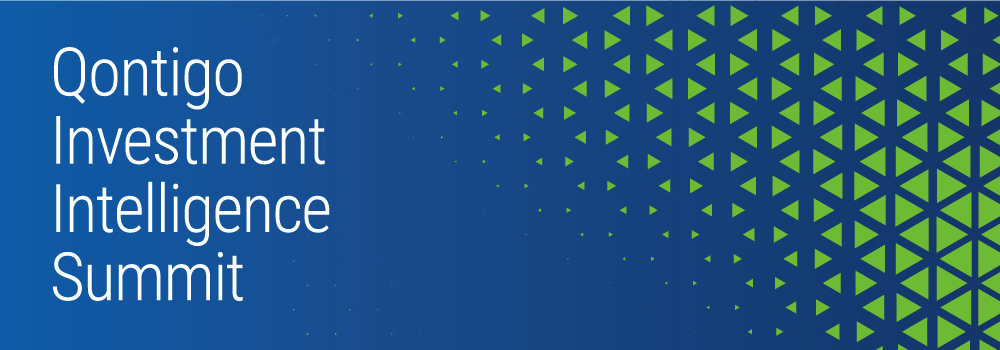
A panel at the Qontigo Investment Intelligence Summit last month discussed the state of sustainable investing in Europe, highlighting among others the need for disclosure harmonization and for quality environmental, social and governance (ESG) data.
The panel entitled ‘A European Approach to ESG’ sought to explore the idiosyncrasies and drivers of sustainable investments in the region. Among key opinions, the panelists called on European regulators and investors to continue showing the way in sustainability by setting standards in non-financial corporate reporting.
Much happened in 2020 in the endeavor to incorporate ESG measures into financial markets. At least four initiatives emerged to harmonize non-financial, i.e. sustainability-related, corporate reporting. In Europe, a Climate Benchmarks regulation was introduced in June and the highly-anticipated European Union (EU) Taxonomy that classifies economic activities by their environmental impact entered into force in July.1
“I think we can all agree that the lack of high-quality, comparable corporate sustainability data remains one of the central challenges investors are facing,” Susanne Draeger, senior policy analyst at the Principles for Responsible Investment, said during the debate. “The European Union has really led the globe on sustainable finance reforms and yet there is a clear and urgent need to harmonize corporate and investor disclosure requirements.”
European rules promoting responsible investing fall within the EU’s Green Deal and its action plan on sustainable finance, and include a new Sustainable Finance Disclosure Regulation (SFDR)2 and a proposed sustainable corporate governance framework. Now, they “need to be supported by a non-financial reporting standard,” Draeger added. The EU Taxonomy and SFDR are expected to be implemented by 2022.
The EU panel was moderated by Rodolphe Bocquet, global head of sustainable investment at Qontigo, and was part of the daylong Summit around the topic of sustainability. The effect of climate change on financial markets and portfolio construction was one of the key debated themes. A strong line-up of investors, practitioners and policymakers shared their enlightening insights on how they are integrating sustainability and, to use Qontigo’s tagline, optimizing impact.
Data, not ratings
Among several projects to standardize non-financial reporting, European investors will prioritize the clarity and availability of direct sustainability data, the panelists said.
“What is available in the market has to meet the need of European investors,” said Claudia Kruse, global responsible for Investment & Governance at APG. “We don’t buy into scores and ratings; we buy into the underlying data. If we can understand what is underlying and that is accessible to us, then it is of interest to us.” APG oversees more than EUR 500 billion for Dutch pension funds.
Thierry Déau, founder and chief executive officer of Paris-based asset manager Meridiam, agreed and said that pure ESG metrics help avoid greenwashing and relativity, and provide investors with more strategic possibilities. Because European practitioners’ approach to ESG data is quite unique, it is important for the region to set ESG disclosure standards, he said.
“It is a strategy move for the European Union to be the standard setter,” Déau said.
Coincidentally, ESG ratings were also the focus of criticism in another panel of the day. The World Bank’s Katya Gratcheva said during her presentation that current such scores in the sovereign bond market carry inherent biases. We’ll report on Gratcheva’s views in a separate article.
Impact investing
Another strategy that has emerged as a European feature is the integration in portfolios of the United Nations’ Sustainable Development Goals (SDGs)3 as more asset owners and money managers seek to drive real impact in the world. This trend, in turn, has further boosted the need to quantify impact parameters in investments.
Kruse commented on APG’s involvement in the Sustainable Development Investments Asset Owner Platform (SDI AOP), which provides a common definition, taxonomy, and data source for investments into the SDGs and seeks to channel capital into the goals.
“It is important to clearly identify the contribution to the SDGs, to have a common standard around that and to have the underlying data sets available that can be integrated into the investment processes,” she added. “For all of us, it is crucial to make that positive contribution, to have them firmly embedded in the investment process and to work with others collaboratively to help advance it.”
SDGs are not focused on conduct as are ESG ratings, but rather on the core products and services of a company. They are based on financial metrics of how the business contributes to each SDG.
Meridiam’s Déau shared his company’s own experience in developing two portfolio tools: one to measure the holdings’ temperature gap with the Paris objectives, and one tracking the positive contribution into the SDGs.
For us, “this is a journey that started eight years ago,” said Déau. “What we discovered at the time is that there is not enough benchmark data available, nor standards or methodology, to actually be able to figure out the real impact of ESG performance on our asset class.”
ESG as fiduciary duty
Draeger also commented on the evolving notion of fiduciary duty and said that financial market participants who fail to integrate ESG issues are increasingly likely to be subject to legal challenges. Europe’s SFDR is likely to give impulse to the notion of ESG as a fiduciary duty as it requires the integration of sustainability risks in investment decisions and the clear advertisement of these risks.
The “SFDR sets a new and wide-ranging disclosure obligation relating to the so-called principle adverse impacts of the whole firm’s investments,” said Draeger. “The SDFR is of additional relevance as it is a disclosure framework based on established environmental and social due diligence guidelines for investors.”
Progress along the way
Europe’s approach to ESG is intensifying and, as Qontigo’s Bocquet put it, seems to be walking on two legs: there is the regulatory front and then a stream of investor initiatives. As both forge ahead, they uncover new challenges, such as the need to standardize data and disclosure practices. When it comes to ESG, progress begets progress.
Visit us in coming days as we continue reporting on the event’s other highlights.
Further reading:
Qontigo Summit Addresses Ascent of Sustainability in Investments, Need to Optimize Impact
Qontigo Summit Explores Climate Change Risk for Investors, Regulators
11 The Sustainable Finance Taxonomy Regulation came into force on Jul. 12, 2020. Read more on the EC site.
2 For more on the SDFR, read the article ‘Sustainable Finance Disclosure Regulation: An Industry Game-changer,’ from our partners at Sustainalytics.
3 The SDGs were devised by the UN and build on decades of work from the international organization to end poverty, improve health and education, reduce inequality, and spur economic growth – all while tackling climate change and preserving the environment.



